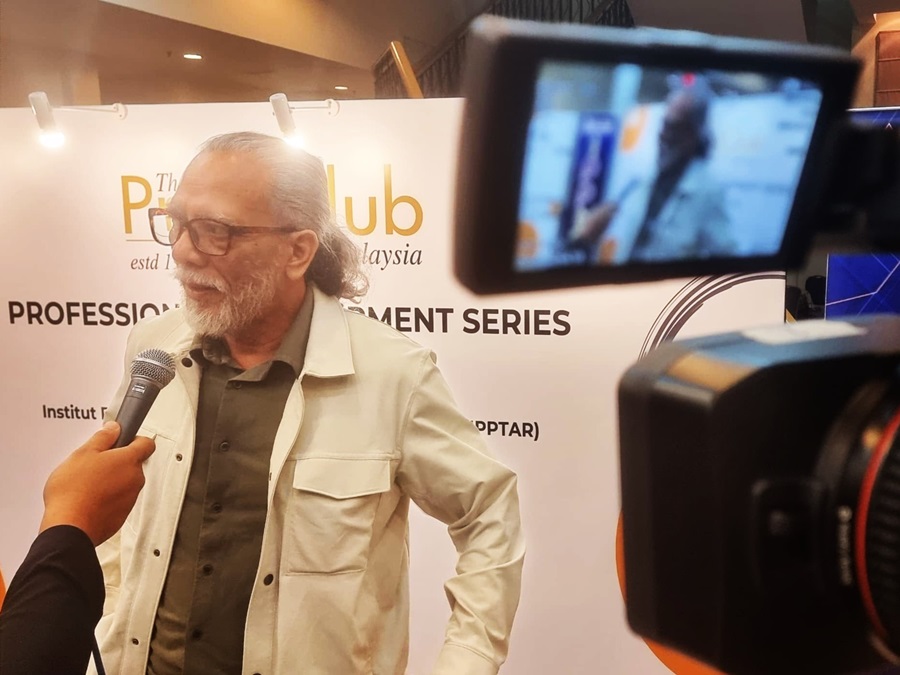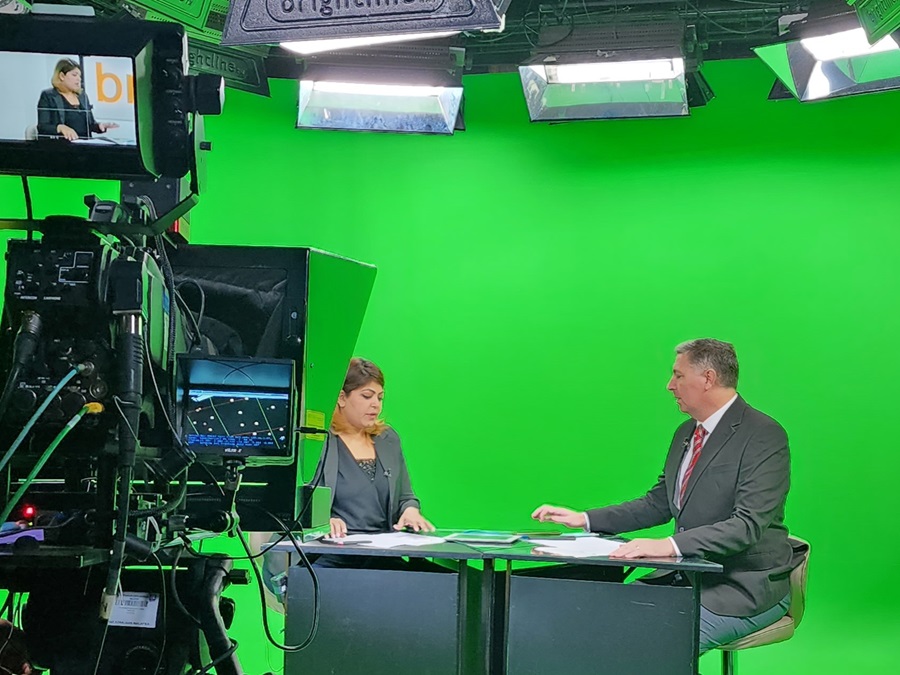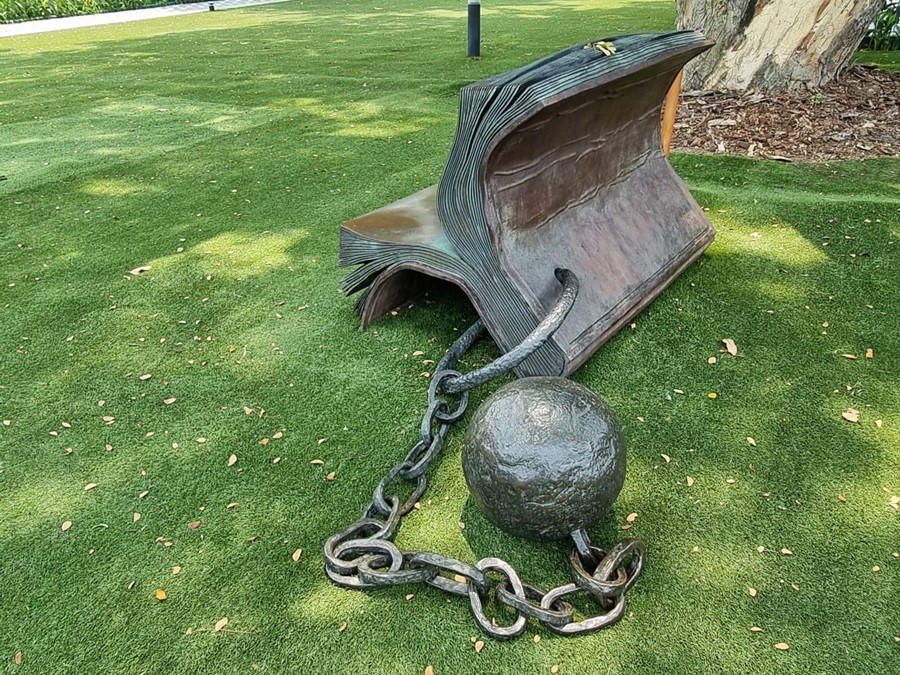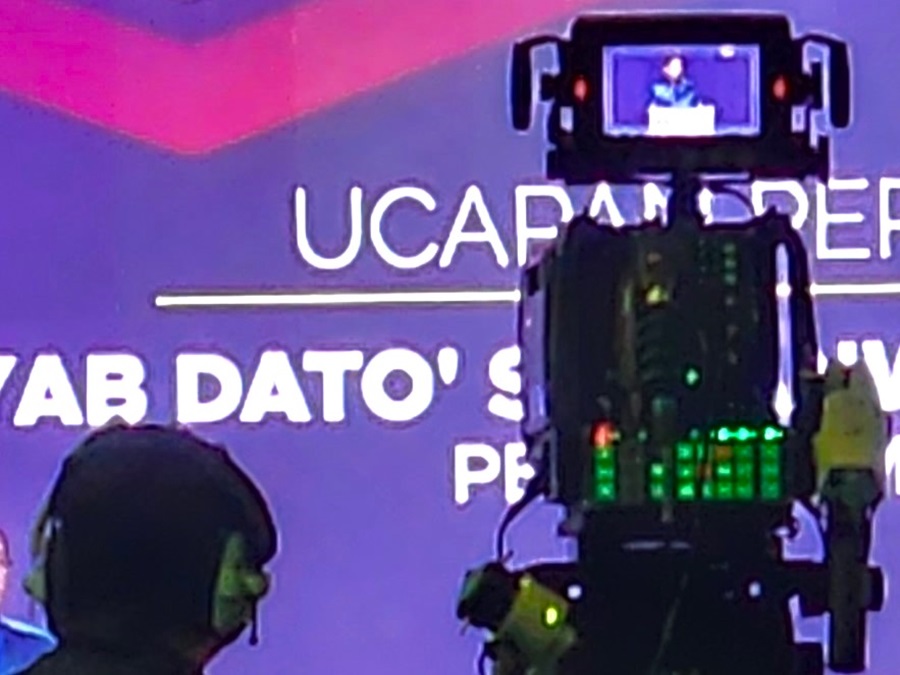On World Press Freedom Day, annually celebrated on 3 May, the Crisis Management Centre revealed findings of a nationwide survey that showed Malaysian media’s optimism on the outlook of the media industry in the next 12 months.
When asked if the Malaysian media industry will grow in the next 12 months, three-quarters of the 215 respondents answered in the affirmative.
Crisis Management Centre conducted this survey in January and February this year during the Professional Development Series (PDS) nationwide tour organised by The National Press Club of Malaysia (NPC) which gained the participation of 488 journalists, media industry practitioners and members of the academia.
The NPC PDS tour, and as such the survey, covered 10 states which includes Johor, Kuala Lumpur, Negeri Sembilan, Pahang, Perak, Pulau Pinang, Putrajaya, Sabah, Sarawak, and Selangor.

NPC president Datuk Ahirudin Attan, when presented with the survey findings, commented, “This study is an eye-opener because it displays optimism amongst journalists, which we ourselves are not aware of. It’s the first time that we have gathered this type of information which kind of creates a collective finding of how journalists view their own industry. And to me, it is that significant – the optimism – among my fellow journalists.”
Ahirudin also pointed out that the findings also reflect confidence in the broader perspective, meaning confidence in the authorities especially “since the relations between journalists and the authorities have always oscillated between hot and cold”.
He added, “If they feel that there is an opportunity for growth (for the industry), and I mean growth in terms of financial and the space to be more creative and expressive, which are very important for the profession, that means they have confidence in the “partner” in the government. And that’s quite refreshing.”
Ahirudin believes that this optimism also reflects confidence in the general economy, in the general well-being and welfare of the people. “I mean it can be interpreted that way. But of course, it would be nice if the Crisis Management Centre could conduct a deeper study into all this. It will allow journalists to understand themselves and their industry a little better,” he concluded.
Crisis Management Centre founder, Nordin Abdullah, said, “The National Press Club have taken considerable strides in the last 12 months to play a more active role in the improvement of the media landscape. The Crisis Management Centre is pleased, in our small way, to support this effort.”
He said the motivation for doing this research is to have data that is homegrown. “We cannot base our success or failure purely on research done by international researchers,” he continued.

When speaking about the Malaysian media landscape, Nordin opines that Malaysia has a strong cadre of seasoned journalists with international and regional experience.
“The next generation should take the opportunity to learn from them while at the same time travelling to as many countries to become part of the global media fraternity. This is an obvious next step as we collectively respond to the crisis that is the post-truth era,” he continued.
According to Nordin, who is also the founding chairman of the Malaysia Global Business Forum, there is an emerging trend for many journalists from established media brands to move into the gig economy or to establish micro media brands.
He said, “They offer valuable coverage of issues and events that the larger media brands cannot or do not want to cover for economic reasons. This means there are smaller sites that still follow journalistic standards that are sustainable. Every once in a while, they will scoop the bigger brands. This is what makes the Malaysian media scene vibrant.”
World Rankings and the Need for Regional Focus
When speaking of surveys and rankings, the annual Press Freedom Index by France-based Reporters Without Borders (RSF) is one that was talked about the most of late especially in Malaysia as the country’s ranking fell 34 places to 107 from last year’s 73.
This caused a stir and garnered a response from the relevant ministry while getting extended airtime in mainstream and social media alike. These responses are much ado with the regulatory and governance aspects in the context of freedom of the press and freedom of speech in general since Malaysia’s change of government in November 2022.
The question that immediately comes to mind following the announcement of any rankings, ratings and survey analyses is always the methodology especially to do with the sampling and the survey questions. Did the survey questions take into account the cultural landscape of the markets being researched?
Understanding the lay of the land will result in deeper insights and a fairer analysis. As much as international benchmarking is necessary and applauded, a more nuanced understanding is essential in reflecting the reality of the market in question.

In this case, understanding the media ecosystem in Asia and ASEAN would be crucial when designing the study.
In reference to RSF’s Press Freedom Index, out of the 32 countries listed in the Asia-Pacific region, all save 11 are in the bottom half of the global ranking. Out of all the ASEAN member countries in this region, only Thailand at 87 is at the top half of the rank. This begs the question of whether the Asian and ASEAN contexts were considered when designing the survey and when defining press freedom.
Researchers from the University of Georgia, Lee Becker and Tudor Vlad, correlated the rankings of RSF, Freedom House and the IREX-inex and attested that these rankings have high reliability but are based on a very Western understanding of press freedom.
In the article titled “How Reliable are Press Freedom Rankings?” by the European Journalism Observatory, Becker and Vlad were quoted as saying, “The Freedom House and Reporters without Borders measures focus mostly on media freedom and independence from government control and are less reflective of the control exercised by commercial and corporate interests.”

Ahirudin, who is also a prominent political commentator in his writings under his moniker Rocky Bru, admits his suspicions of the RSF assessment. In his opinion piece on Scoop titled ‘RSF’s 2024 World Press Freedom Index is more flawed than ever – Rocky Bru’, which highly criticised RSF’s analysis, he urged Malaysia’s minister of communications to challenge RSF’s latest global press freedom report, “because the RSF’s rankings are flawed – have almost always been”.
In the same article, he questions the credentials of RSF’s panel of experts and wonders if they have “spent at least a day in the newsroom?”
Ahirudin said, “These are not forthcoming. It is ironic for an organisation that also champions transparency and accountability” adding that “It can hide behind its methodology which comprises political context, legal framework, economic context, sociocultural context and safety.”
Nordin, who is also vice president of the Australia-ASEAN Chamber of Commerce (AustCham ASEAN), points out the need for regional benchmarking that allows for better understanding and solutions.
“The RSF report highlights the need for an ASEAN response and designing our own ranking to understand where we are in the context of ASEAN. Not just which country is number one, but looking at the matrix of information that is presented. This can then be calibrated with Asian and ASEAN social and cultural norms together with international best practices in terms of journalism,” said Nordin.
He added, “Until we can do that as a grouping, we will have to accept the findings of this report because there is no intellectual alternative.”
For Malaysia, Nordin concluded, “Yes, the government should continue down the path of legislative and regulatory reforms, but those reforms need to be done with the context of where the Malaysian media industry is. As such, more in-depth research is required. This is the only way we can build a desired and sustainable future for the media industry.”
*This article was written by Ruzanna Muhammad, a writer, editor, and consultant with close to 20 years of experience working with Malaysian and international clients. Ruzanna has an educational background in Industrial Technology. She has an equal passion for literature and the arts, balancing the values of empirical knowledge and creative imagination, hence her foray into the media, publishing and communication sectors. Ruzanna is currently the Editor-at-Large for News Hub Asia. ![]()

